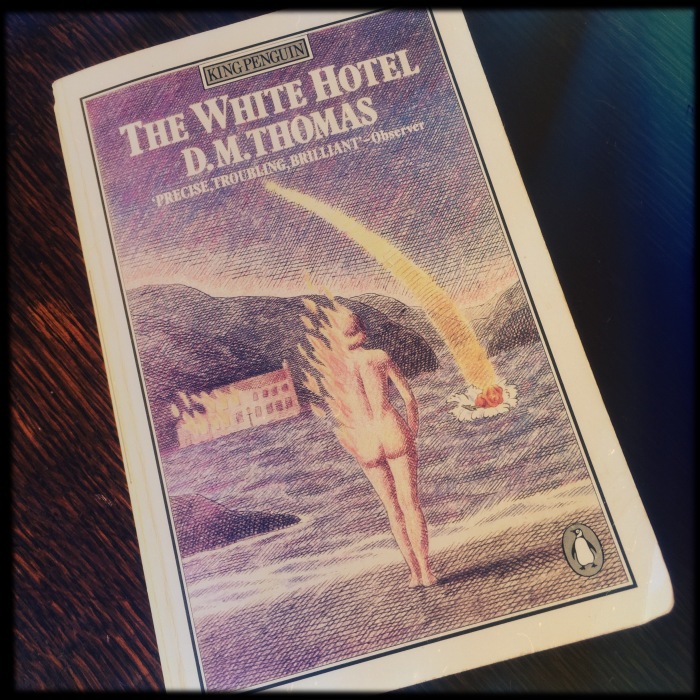In 198something, when I was at Winchester School of Art, I had a friend on the same course as I was that during those three short years gave me several gifts, sometimes random, sometimes birthdays. All unexpected but all gratefully received. Often these were books. One of the early ones was a copy of ‘The White Hotel‘, a novel by the British author DM Thomas.
This early work by Thomas was in my mind connected with a resurgence of Magical Realism during that period connected to Salman Rushdie, Gabriel Garcia Marquez & Milan Kundera. Thomas didn’t quite reach the heights of critical reception those other managed. His work was diverse, playing with factional narratives, embedded in an academic knowledge of Russian literature (he went on to produce translations of both Pushkin & Akhmatova).
I suspect my friend gave me this book based on my stated interests of the time of Freud & Jung. Its a harrowing book as it reaches its conclusion, going into early twentieth century atrocities of war, but it was the verse poem that’s used in this piece that stayed with me. It’s hard to shake when its heard.
From Wikipedia;
The book’s first three movements consist of the erotic fantasies and case history of one of the novelist’s conception of Sigmund Freud’s female patients, overlapping, expanding, and gradually turning into almost normal narrative. But then the story takes a different course with the convulsions of the century, and becomes a testament of the Holocaust, harrowing and chillingly authentic. Only at the end does the fantasy element return, pulling together the earlier themes into a kind of benediction.
The book begins with a long poem, full of erotic imagery and near-incoherent description. Following this is a prose version of the story that we learn is written by a young woman who is a semi-successful opera singer who comes to Sigmund Freud for analysis[5] as she suffers from acute psychosomatic pains in her left breast and her womb. Her character and the pseudonym Anna G. might draw on examples of real case studies (Freud’s “Wolfman” also appears as a peripheral character in the novel), but the novel is indeed fictional. Thomas lets the reader in on Freud’s analysis, as well as his ambiguous feelings towards his patient. At several stages, Freud is ready to throw up his hands and tell her that he won’t continue his treatment as he feels she is not forthcoming enough to make any real progress. He always relents, however, because he senses that “Lisa” (the opera singer’s real name) has enough redeeming attributes to warrant his time.
In some places the poem (spoken here by a text to speech application) is lost in the sound. There’s a dizzying anxiety in verse, ears & head pounding, from fear or arousal, that the sound scape attempts to echo.
I must stress that the content of the verse is disturbing and extreme. It contains themes of libidinous desire and might be considered as pornographic. Please avoid if you don’t feel this is for you.
I do not own these words, but the memory of reading them more than a few years ago has strayed with me.
The White Hotel is available HERE
More about the author HERE





